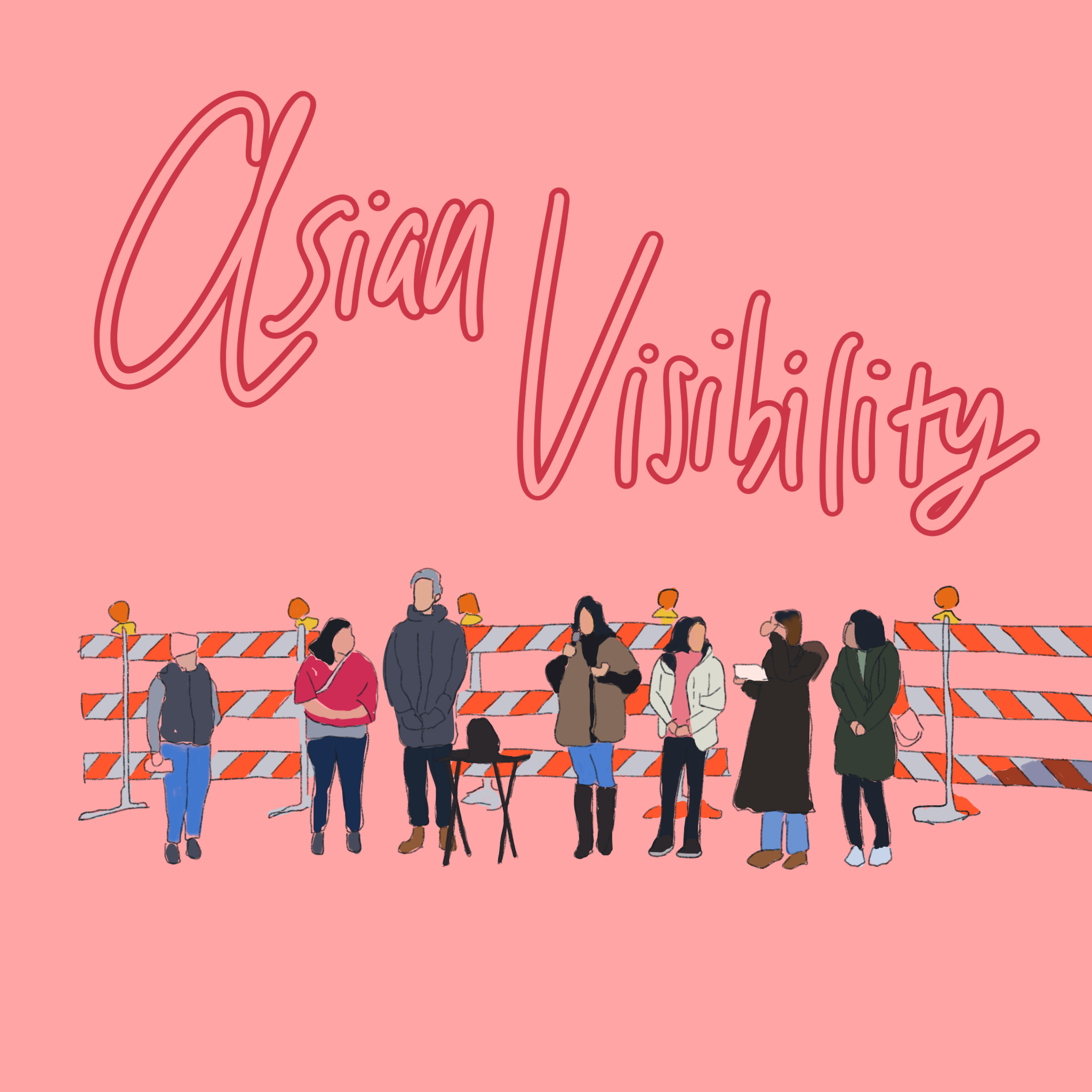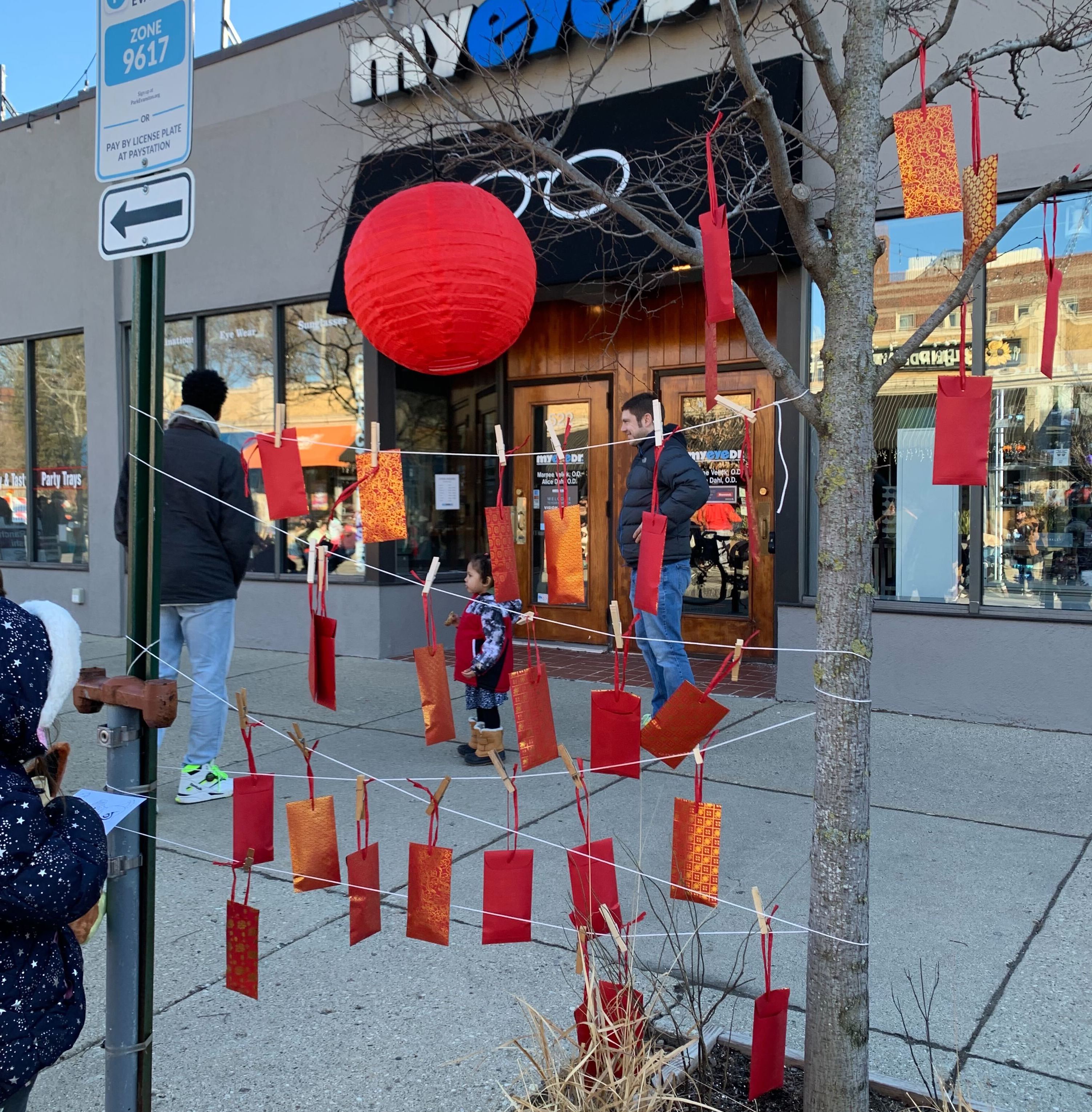
On the 500 block of Dempster, Evanston families crowded around a fiery red two-person lion, performed by Freddie’s Modern Kung Fu. The lion danced to the sound of beating drums while throwing lettuce, which symbolizes prosperity and good luck. In the background of the spectacle, visitors lined up for free red envelopes and hot chocolate.
The city celebrated its third annual Lunar New Year celebration last month as a part of the effort to increase Asian American visibility in the broader Evanston community.
About 10% of Evanston residents identify as Asian American, according to the US Census. Despite the community having existed in Evanston since the late 1800s, Melissa Raman Molitor, founder and director of Evanston ASPA (Asian, South Asian, Pacific Islander Americans), said the Asian American community had been practically invisible.
“There are no spaces, there are no services, there is no support, there is nothing that exists that centers the Asian American community,” she said.

Evanston ASPA tries to change that by giving Asian Americans a voice in Evanston’s civic, cultural and community spaces.
Recently, support from community partners has grown. This year, Evanston ASPA, Main-Dempster Mile, Evanston Public Library (EPL), Evanston Pride, Studio 3 and Cook County Commissioner Josina Morita all helped organize the Lunar New Year celebration.
Main-Dempster Mile Executive Director Katherine Gotsick came up with the idea in 2021 and suggested it to Molitor as a fun outdoor gathering. Gotsick thought this welcoming event would rally community spirit and promote local businesses as pandemic restrictions were starting to lift.
Gotsick ensured Evanston ASPA spearheaded the programming.
“If we wanted it to be a grassroots thing, we wanted it to come from the Asian community,” Gotsick said. “We didn't want to be taking charge of it.”
But this Lunar New Year celebration wasn’t the first in Evanston. In 2014, when EPL volunteer Wendy Cao immigrated here from China, she noticed Evanston had a growing Chinese population but no Chinese New Year celebrations. So, she initiated EPL’s first celebration as a way to share her culture with other locals.
EPL has since hosted annual events to honor Chinese New Year, including craft activities, traditional Chinese story readings and a lion dance parade. EPL also creates children’s booklists. To this day, Cao said she’s very proud of initiating the ongoing new year celebrations.
EPL also hosts programming for other Asian holidays like Diwali and Mid-Autumn Festival. Cao said that EPL has been historically focused on ethnic-specific programming.
When EPL partnered with Evanston ASPA to celebrate Lunar New Year for the first time this year, Cao said that the hope was more organizers would host a larger event.
The turnout did end up “modestly bigger” than last year based on Gotsick’s estimates. But most notably, the celebration’s social media footprint had quadrupled. On Facebook, the event received about 300 responses in 2023 and increased to 1,300 responses this year.
Although there were larger celebrations organized in Skokie, Argyle, Navy Pier and Chinatown, locals still chose to attend this Evanston event.
Nicole “Coco” Colin, owner of Coco Design & Build, doesn’t personally celebrate this holiday, but she was eager to open up her store to host dragon-themed arts & crafts. She said she has a sense of belonging in this community and loves to be involved at these gatherings.
Lunar New Year celebrations are newly cropping up in other community spaces in Evanston. Sherry Wu, a Dewey Elementary School parent, said this was the first year that the school celebrated Lunar New Year. Wu was a parent organizer that led the dragon dance practices. The two-day festivities also involved traditional craft activities like calligraphy and woodblock printing, Chinese food and a bilingual play and dance performed by high school students studying Chinese at Evanston Township.
Evanston ASPA has several projects in progress: hosting its annual Umbrella Arts Festival in May, establishing an Asian American Art and Cultural Center and collecting oral histories for its Placemaking Project. Molitor knows that change is slow, but she’s driven by her vision of community.
“It's all the things that I wish were in place when I was growing up. It's all the things that I wish were in place for my kids,” she said. “So it's like, what are we leaving for future generations?”